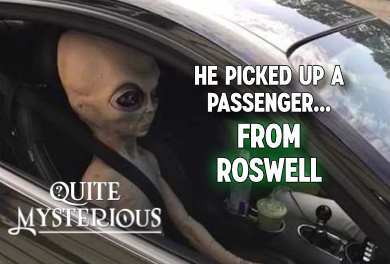The UFO Phenomenon
May 14, 2024 · 27 comments
27 comments

Musk had lots to say at the conference. Image Credit: YouTube / electron media group inc.
That's not to say that he doesn't have his own opinions on these topics, however.
Speaking at the 2024 Milken Institute Global Conference in Los Angeles on May 7th, Musk suggested that if we sent probes out into the cosmos to search for aliens it is most likely that we would discover barren planets and the remains of long-dead alien civilizations.
The reason for this, he argues, is that inhabited worlds are extremely rare.
"I think the answer might be, probably, is that civilization is precarious, and rare," he said.
"And that we should really think of human civilization as being like a tiny candle in a vast darkness. And we should do everything possible to ensure that that candle does not go out."
On the subject of aliens visiting the Earth, Musk was clearly skeptical.
"For some reason, a lot of the same people who think there are aliens among us don't think we went to the moon, which, I'm like: 'Think about that for a second'," he said.
"I've not seen any evidence of aliens."
None of his Starlink satellites, he noted, had ever had to "maneuver around a UFO".
"If somebody has evidence of aliens, you know, that's not just a fuzzy blob, then I'd love to see it, love to hear about it," he said. "But I don't think there is."
Source: Space.com | Comments (27)
Elon Musk discusses alien life and UFOs at conference in Los Angeles
By T.K. RandallMay 14, 2024 ·
 27 comments
27 comments
Musk had lots to say at the conference. Image Credit: YouTube / electron media group inc.
The SpaceX CEO had plenty to share on the subject during a panel entitled 'How to save the human race'.
It would be fair to say that Elon Musk has never seemed particularly enthusiastic about UFOs or the possibility of discovering evidence of intelligent extraterrestrial life.That's not to say that he doesn't have his own opinions on these topics, however.
Speaking at the 2024 Milken Institute Global Conference in Los Angeles on May 7th, Musk suggested that if we sent probes out into the cosmos to search for aliens it is most likely that we would discover barren planets and the remains of long-dead alien civilizations.
The reason for this, he argues, is that inhabited worlds are extremely rare.
"I think the answer might be, probably, is that civilization is precarious, and rare," he said.
On the subject of aliens visiting the Earth, Musk was clearly skeptical.
"For some reason, a lot of the same people who think there are aliens among us don't think we went to the moon, which, I'm like: 'Think about that for a second'," he said.
"I've not seen any evidence of aliens."
None of his Starlink satellites, he noted, had ever had to "maneuver around a UFO".
"If somebody has evidence of aliens, you know, that's not just a fuzzy blob, then I'd love to see it, love to hear about it," he said. "But I don't think there is."
Source: Space.com | Comments (27)

The Unexplained Mysteries
Book of Weird News
AVAILABLE NOW
Take a walk on the weird side with this compilation of some of the weirdest stories ever to grace the pages of a newspaper.
Click here to learn more

Support us on Patreon
BONUS CONTENTFor less than the cost of a cup of coffee, you can gain access to a wide range of exclusive perks including our popular 'Lost Ghost Stories' series.
Click here to learn more
United States and the Americas
Ancient Mysteries and Alternative History
Conspiracies and Secret Societies
Spirituality, Religion and Beliefs
Total Posts: 7,746,788 Topics: 323,670 Members: 203,468
Not a member yet ? Click here to join - registration is free and only takes a moment!
Not a member yet ? Click here to join - registration is free and only takes a moment!



































Please Login or Register to post a comment.